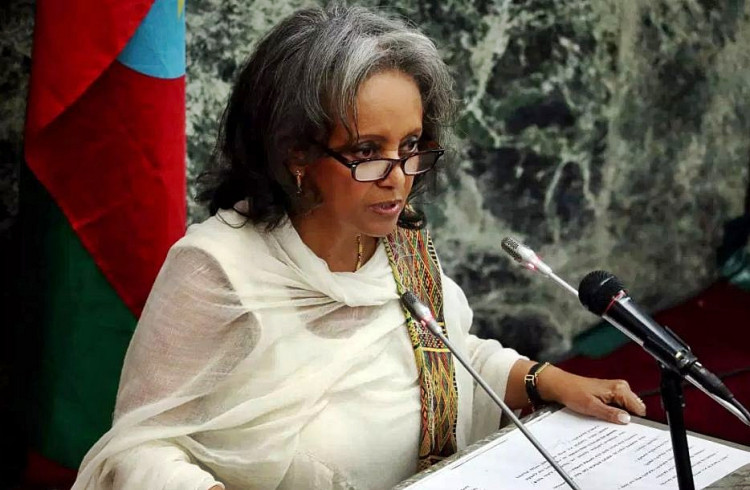Career diplomat Sahlework Zewde was appointed President of Ethiopia yesterday, becoming the first woman to hold this post. She was unanimously elected President by the Federal Parliamentary Assembly.
She will work alongside Prime Minister Abiy Ahmed, who took office in April and is Africa's youngest leader at 42 years of age. Half of the 20 members of Ahmed's new Cabinet are women, and Sahlework is their de facto leader on account of her position.
Women now occupy the two most prominent Cabinet positions: minister of defense and the newly created minister of peace that oversees the intelligence and armed forces.
The reformist Ahmed is breaking-up the remnants of the former authoritarian regime. He has freed thousands of political prisoners; made peace with neighboring Eritrea; is opening the economy to foreign investment and appointed a gender-balanced Cabinet -- the only one of its kind in Africa.
Sahlework is also Ethiopia's fourth president since the ruling Ethiopian People's Revolutionary Democratic Front (EPRDF) coalition came to power. Sahlework replaced Mulatu Teshome, who suddenly resigned Wednesday for reasons yet unclear. She is also Africa's only serving female head of state.
Before her appointment as president, Sahlework was Special Representative of United Nations Secretary-General António Guterres to the African Union, and Head of the United Nations Office to the African Union at the level of Under-Secretary-General of the United Nations. She was the first woman in this post.
Sahlework was previously director-general of the U.N. Office at Nairobi. During her career, Sahlework held a number of diplomatic posts and was once Ethiopia's ambassador to France and Djibouti.
The Ethiopian Constitution state the president's powers and functions include appointing ambassadors, receiving foreign envoys and granting pardons.
Women's groups in Ethiopia, such as there are, were elated by Sahlework's appointment as president.
Metasebia Shewaye Yilma, president of AWiB (an Ethiopian women's business group) said she's "ecstatic" at Sahlework's appointment. She described it as superb news for all us here, especially for women.
She noted that women are now represented in power in Ethiopia. She believes that with Sahlework as president, Ethiopian women, who constitute half the population, feel more represented in the halls of political power.
Metasebia calls the political changes made by Ahmed "a huge leap" in the generations-long struggle for gender equality in patriarchal Ethiopia.
Ethiopia has some of the lowest gender equality performance indicators in sub-Saharan Africa, said the United Nations Entity for Gender Equality and the Empowerment of Women.
The UN unit also said Ethiopian women and girls are strongly disadvantaged compared to boys and men in several areas, including literacy, health, livelihoods and basic human rights. They also suffer from low status in their society and lack social support networks.
The 2017 Global Gender Gap Report ranked Ethiopia at 115 out of 144 countries in terms of the magnitude and scope of gender disparities.






